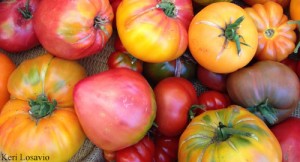 Two recent studies linking a person’s diet to their risk of developing rheumatoid arthritis (RA) are a needed step forward in gauging what people eat as a risk factor, says a leading rheumatologist.1
Two recent studies linking a person’s diet to their risk of developing rheumatoid arthritis (RA) are a needed step forward in gauging what people eat as a risk factor, says a leading rheumatologist.1
“It’s very important,” says Sara Tedeschi, MD, clinical research fellow in rheumatology at Brigham and Women’s Hospital, Boston, “especially given patient interest in this area and the fact that diet is a controllable potential risk factor.
“If we’re able to more definitively identify protective or risk factors for developing rheumatoid arthritis, that would [have] a very powerful potential [for] intervention for those people who are at an increased risk [of RA] either due to family history or a combination of other risk factors, like smoking and being overweight or obese,” she says.
One of the studies surveyed 93,859 female participants from 1991–2011. According to the study, “Two dietary patterns were identified using principal component analysis: the prudent dietary pattern characterized by high intakes of fruit, vegetables, legumes, whole grains, poultry and fish; and the Western pattern characterized by high intakes of red meats, processed meats, refined grains, French fries, desserts and sweets, and high-fat dairy products.” Researchers concluded that the prudent diet had “a negative association” for risk of RA, while the Western diet was associated with increased risk of RA.2
The second study showed that following the federal Dietary Guidelines for Americans can also lower a person’s risk of developing RA.3
The lead investigator in both studies was Bing Lu, MD, DrPH, assistant professor of medicine at BWH and Harvard Medical School.
Dr. Tedeschi, who works with Dr. Lu, says more research linking diet and RA is necessary.
“This [factor] is something that is within patients’ control. Therefore, if we are able to identify people [who] are at risk for developing RA, and if we then can use these types of studies to identify dietary patterns that are associated with a protective effect or an increased risk, that [finding] definitely is a kind of intervention that is very powerful on a patient level,” she says.
Richard Quinn is a freelance writer in New Jersey.
Reference
- The American College of Rheumatology. News release: Diet may determine your risk for rheumatoid arthritis. 2015 Nov 9.
- Lu B, Hu Y, Sparks JA, et al. Prospective study of dietary patterns and risk of rheumatoid arthritis in women [abstract]. Arthritis Rheumatol. 2015;67(suppl 10).
- Hu Y, Sparks JA, Costenbader KH, et al. Adherence to the dietary guidelines for Americans and risk of developing rheumatoid arthritis in young and middle-aged women [abstract]. Arthritis Rheumatol. 2015;67(suppl 10).

